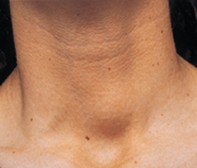Peer Reviewed
Feature Article Endocrinology and metabolism
Thyroid disease in pregnancy
Abstract
Thyroid disease is common in the childbearing years. It impairs fertility and, if untreated, greatly increases risks of complications in pregnancy. The physiological changes of pregnancy place stresses on the thyroid axis, but most women adapt to these and remain euthyroid. This article will assist GPs managing patients with thyroid disease during pregnancy and in the postpartum period.
Key Points
- In pregnant women, thyroid function tests should be checked every six to eight weeks in hypothyroidism and every four to six weeks in hyperthyroidism.
- Thyroid stimulating antibodies cross the placenta and may produce fetal and neonatal hyperthyroidism, and should be measured during the first and third trimesters.
- Propylthiouracil and carbimazole are safe in pregnancy and in breastfeeding.
- Beware of patients with a past history of thyroid ablation for Graves’ disease – the fetus may still be affected by maternal antibodies crossing the placenta.
- Patients with postpartum thyroid disease are at increased risk of developing permanent hypothyroidism and should have annual thyroid function tests.
Purchase the PDF version of this article
Already a subscriber? Login here.

